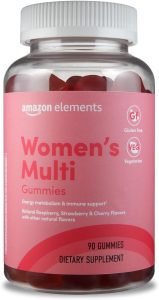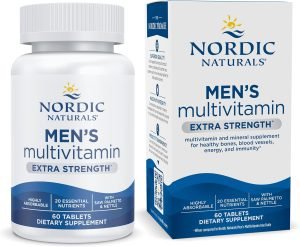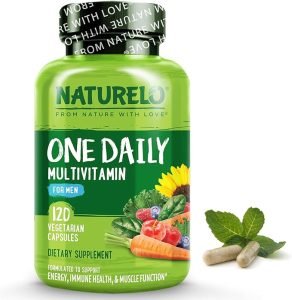Should You Take A Multivitamin With Greens?
Are you wondering if adding a multivitamin with greens to your daily routine is worth it? The debate over the effectiveness and necessity of these supplements has been ongoing, with opinions divided. In this article, we will explore the arguments for and against taking a multivitamin with greens, helping you make an informed decision about whether it’s right for you.
Benefits of Multivitamins
Filling Nutritional Gaps
Taking a multivitamin with greens can help fill any nutritional gaps in your diet. Despite our best efforts to eat a balanced and varied diet, it can be challenging to ensure we are getting all the necessary vitamins and minerals our bodies need. Multivitamins contain a wide range of essential nutrients that can help supplement any deficiencies in our diet, ensuring that we are meeting our daily requirements.
Boosting Immune System
multivitamins with greens can also play a crucial role in supporting a healthy immune system. Many vitamins and minerals, such as vitamin C, vitamin D, and zinc, are known for their immune-boosting properties. By incorporating these nutrients into our daily routine through a multivitamin, we can enhance our immune response and better protect ourselves against common illnesses.
Supporting Energy Levels
Feeling tired or low in energy can often be a sign of nutrient deficiencies. Multivitamins with greens can help combat this by providing the necessary vitamins and minerals that contribute to energy production within the body. B vitamins, in particular, are instrumental in converting food into energy and can help combat fatigue. By incorporating a multivitamin into your daily routine, you may notice a boost in your energy levels and overall vitality.
Benefits of Greens
Rich in Nutrients
Greens, such as spinach, kale, and broccoli, are packed with essential vitamins, minerals, and antioxidants. These nutrients play a vital role in maintaining optimal health and preventing chronic diseases. By incorporating greens into your diet or taking a multivitamin with greens, you can reap the benefits of these nutrient powerhouses and support your overall well-being.
Source of Fiber
Fiber is an essential component of a healthy diet, and greens are an excellent source of this nutrient. Adequate fiber intake promotes proper digestion, helps regulate blood sugar levels, and can aid in maintaining a healthy weight. By incorporating greens, whether in your diet or through a multivitamin, you can ensure you are getting the fiber your body needs for optimal health.
Promote Digestive Health
Greens are not only rich in fiber but also contain various compounds that support digestive health. These compounds, such as chlorophyll and enzymes, can aid in digestion, reduce inflammation, and promote a healthy gut microbiome. By incorporating greens into your diet or taking a multivitamin with greens, you can help support a healthy digestive system and overall gut health.

The Role of Multivitamins with Greens
Convenience
One of the primary benefits of taking a multivitamin with greens is the convenience it offers. Instead of having to incorporate numerous green vegetables into your diet, a multivitamin with greens provides a simple and easy way to ensure you are getting the vital nutrients found in these vegetables. For those with busy lifestyles or dietary restrictions, a multivitamin can be a convenient solution to obtain the necessary nutrients.
Enhanced Nutritional Profile
Multivitamins with greens offer an enhanced nutritional profile by combining the benefits of both multivitamins and greens. In addition to the broad range of vitamins and minerals typically found in multivitamins, these supplements also provide the added benefits of greens, including their rich nutrient content and fiber. This combination can help further support your overall health and well-being.
Potential Synergy
The combination of multivitamins with greens may also lead to potential synergistic effects. Certain vitamins and minerals work together in the body to optimize their absorption and utilization. By incorporating greens into your multivitamin, you provide the necessary co-factors that enhance the absorption and utilization of the nutrients in the supplement. This synergistic effect can potentially maximize the benefits you receive from taking a multivitamin with greens.
Considerations Before Taking
Individual Nutritional Needs
Before taking a multivitamin with greens, it’s essential to consider your individual nutritional needs. Everyone’s body is unique, and nutritional requirements can vary based on factors such as age, gender, activity level, and overall health. Consulting with a healthcare professional or a registered dietitian can help determine if taking a multivitamin with greens aligns with your specific nutritional needs and goals.
Possible Interactions with Medications
Certain medications can interact with the nutrients found in multivitamins with greens. For example, some medications may affect the absorption or metabolism of certain vitamins or minerals. It’s crucial to inform your healthcare professional about any medications you are taking to ensure there are no potential interactions that could compromise your health or the effectiveness of your medications.
Risk of Overdosing
While multivitamins with greens can provide essential nutrients, it is essential to be mindful of the risk of overdosing. Some vitamins and minerals can have adverse effects when taken in excessive amounts, such as vitamin A or iron. It’s important to follow the recommended dosage instructions provided by the manufacturer or, better yet, consult with a healthcare professional to ensure you are taking the appropriate amount for your needs

Effectiveness of Multivitamins with Greens
Mixed Research Findings
The effectiveness of multivitamins with greens has been the subject of various studies, and the findings have been mixed. Some studies suggest that multivitamin supplements can provide benefits, such as reducing the risk of nutrient deficiencies and certain chronic diseases. However, other studies have found no significant effects or even potential harm. More research is needed to determine the precise benefits and effectiveness of multivitamins with greens.
Variability in Product Quality
The quality of multivitamins with greens can vary significantly among different brands and products. Some products may contain higher-quality ingredients, while others may use synthetic vitamins or lower-quality sources of greens. It’s important to choose trusted brands that prioritize quality and adhere to rigorous manufacturing standards. Always check for quality certifications, such as third-party testing, to ensure you are getting a reliable and safe product.
Other Sources of Nutrients
While multivitamins with greens can be beneficial, it’s important to remember that they are not the only source of nutrients. A well-balanced diet that includes a variety of fruits, vegetables, whole grains, lean proteins, and healthy fats should still be the foundation of a healthy lifestyle. Multivitamins with greens can complement a nutritious diet, but they should not be relied upon as a substitute for consuming whole foods.
Potential Side Effects
Digestive Issues
Some individuals may experience digestive issues, such as nausea, stomach discomfort, or diarrhea, when taking multivitamins with greens. This can be attributed to the high dosage of certain vitamins or minerals or individual sensitivity to certain ingredients. If you experience persistent digestive issues, it is advisable to consult with a healthcare professional to determine if the multivitamin with greens is causing the discomfort.
Iron Overload
Certain multivitamins with greens may contain high levels of iron. While iron is an essential mineral, excessive iron intake can lead to iron overload, especially for individuals who already have high iron levels or certain genetic conditions, such as hereditary hemochromatosis. Iron overload can have adverse health effects and should be monitored by a healthcare professional. It is important to choose multivitamins with greens that provide appropriate iron levels for your individual needs.
Allergic Reactions
Individuals with known allergies or sensitivities to certain greens may experience allergic reactions when taking multivitamins with greens. Common allergens include wheatgrass, spirulina, or other ingredients derived from algae. It’s crucial to carefully read the ingredient list and consult with a healthcare professional if you have any known allergies or concerns.

Choosing the Right Multivitamin with Greens
Look for Trusted Brands
When selecting a multivitamin with greens, it is important to choose from reputable and trusted brands. Look for companies that prioritize quality, transparency, and have a good track record in producing safe and effective supplements. Reading customer reviews and consulting with healthcare professionals or registered dietitians can also provide valuable insights into the best brands available.
Check Quality Certifications
To ensure the quality and safety of the product, always check for recognized quality certifications. Third-party testing agencies, such as NSF International or USP (United States Pharmacopeia), evaluate supplement brands for quality, accuracy of labeling, and absence of contaminants. These certifications provide assurance that the multivitamin with greens you choose meets the highest standards of quality.
Consider Individual Needs and Preferences
Consider your individual needs, preferences, and goals when choosing a multivitamin with greens. Factors such as age, gender, dietary restrictions, and specific health conditions should be taken into account. Some multivitamins with greens may be formulated to address specific needs, such as prenatal vitamins for pregnant women or multivitamins for seniors. Consulting with a healthcare professional or registered dietitian can help guide you in selecting the most appropriate option for your specific needs.
Dosage and Usage Recommendations
Follow Product Instructions
To ensure optimal results and minimize the risk of adverse effects, it is crucial to follow the dosage instructions provided by the manufacturer. Each multivitamin with greens may have different recommended dosage and usage instructions, so it is important to read and understand the label thoroughly. Taking more than the recommended amount will not necessarily yield additional benefits and may increase the risk of side effects.
Consult with Healthcare Professional
Before starting any new supplement regimen, it is always advisable to consult with a healthcare professional. They can help determine if taking a multivitamin with greens aligns with your individual needs, provide guidance on proper dosage, and address any concerns you may have. A healthcare professional can also monitor your progress over time and make any necessary adjustments to ensure you are getting the most benefit from the supplement.
Monitoring and Adjusting
It is important to regularly monitor your nutrient levels and overall health when taking a multivitamin with greens. Periodic check-ups and blood tests can help identify any deficiencies or imbalances and allow for adjustments in your supplement regimen, if needed. Keeping an open line of communication with your healthcare professional will ensure that you are taking the right dosage and benefiting from the multivitamin with greens.
Alternatives to Multivitamins with Greens
Eating a Balanced Diet
The most natural and ideal way to obtain essential nutrients is through a well-balanced diet. Focusing on consuming a variety of fruits, vegetables, whole grains, lean proteins, and healthy fats can provide your body with the necessary vitamins, minerals, and phytonutrients. By prioritizing whole foods, you can obtain nutrients in their most natural and bioavailable forms, maximizing their benefits for your health.
Specific Nutrient Supplements
If you have specific nutrient deficiencies or have been advised by a healthcare professional, targeted nutrient supplements may be recommended. These supplements isolate specific vitamins or minerals and provide concentrated doses to address specific needs. It is crucial to consult with a healthcare professional before starting any targeted nutrient supplements to ensure they are appropriate for your individual situation.
Targeted Greens-Based Supplements
If you are specifically looking to incorporate more greens into your diet, targeted greens-based supplements may be an alternative to multivitamins with greens. These supplements typically focus on a specific type of greens, such as wheatgrass or spirulina, and provide concentrated amounts of the nutrients found in those greens. However, it’s important to consider the potential allergenicity of certain greens when opting for this alternative.
Conclusion
Assessing your personal situation, consulting with a healthcare professional, and making an informed decision are key when considering whether to take a multivitamin with greens. While these supplements can fill nutritional gaps, boost your immune system, and support energy levels, it’s important to remember that they are not a substitute for a balanced diet. By considering your individual nutritional needs, checking for reputable brands and quality certifications, and following proper dosage and usage recommendations, you can make a well-informed decision that supports your overall health and well-being.


